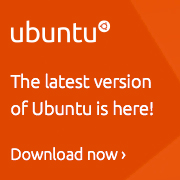Microsoft and Software Business Models of the Future
New models of software pricing and distribution are becoming increasingly popular. […] on the increase: “on-demand” software where customers rent software applications when they need them and pay only for what they use.
All of these models pose unique threats to Microsoft, […] the two biggest competitive threats to Microsoft are open source software and advertising supported applications. “Right now, the emblem of the first one is Linux and the emblem of the second one is Google. But it’s not the companies, it’s the phenomena” that present the greatest challenge to Microsoft […]
Take this into account when reading this interview with Steve Ballmer of Microsoft in the Financial Times, touching on a lot of business model innovation issues, that go well beyond strategic positioning and design, like when he characterizes the uncertainty of context and thinks about how to reach goals …
FT: To what extent, will the growth of software as a service affect the way you think about the new launch of the operating system? Will it have an impact on the amount of money you put in? The way that you go about those sorts of releases?
BALLMER: […] We have services. The next question to ask, is OK: there are services for consumers, but what do services for business look like? There’s a lot coming from us in that direction. We just entered the CRM space. We’ve been churning releases. The amount of energy and excitement around that (I mentioned that after services because we also have a live version of it). Just a ton of stuff in this area.
und natürlich dies hier:
[Ballmer:] Let me talk about it in terms of competition. The biggest competitive challenges that any business faces is actually alternate business models. It is not a company. If you tell me somebody wants to come compete with us and do software in an area where we compete, or that we are going to get in a new area and it’s the same business model, it’s selling software, I know we can do it.
When somebody comes with a different business model, that’s where you get… or a phenomenon comes with a different business model.
What was the number one different business model that our company has confronted in the last six years? It’s Open Source. Open Source is not a technology phenomenon; it is a business model phenomenon. Frankly speaking, exactly what that business model is, is still unclear.




